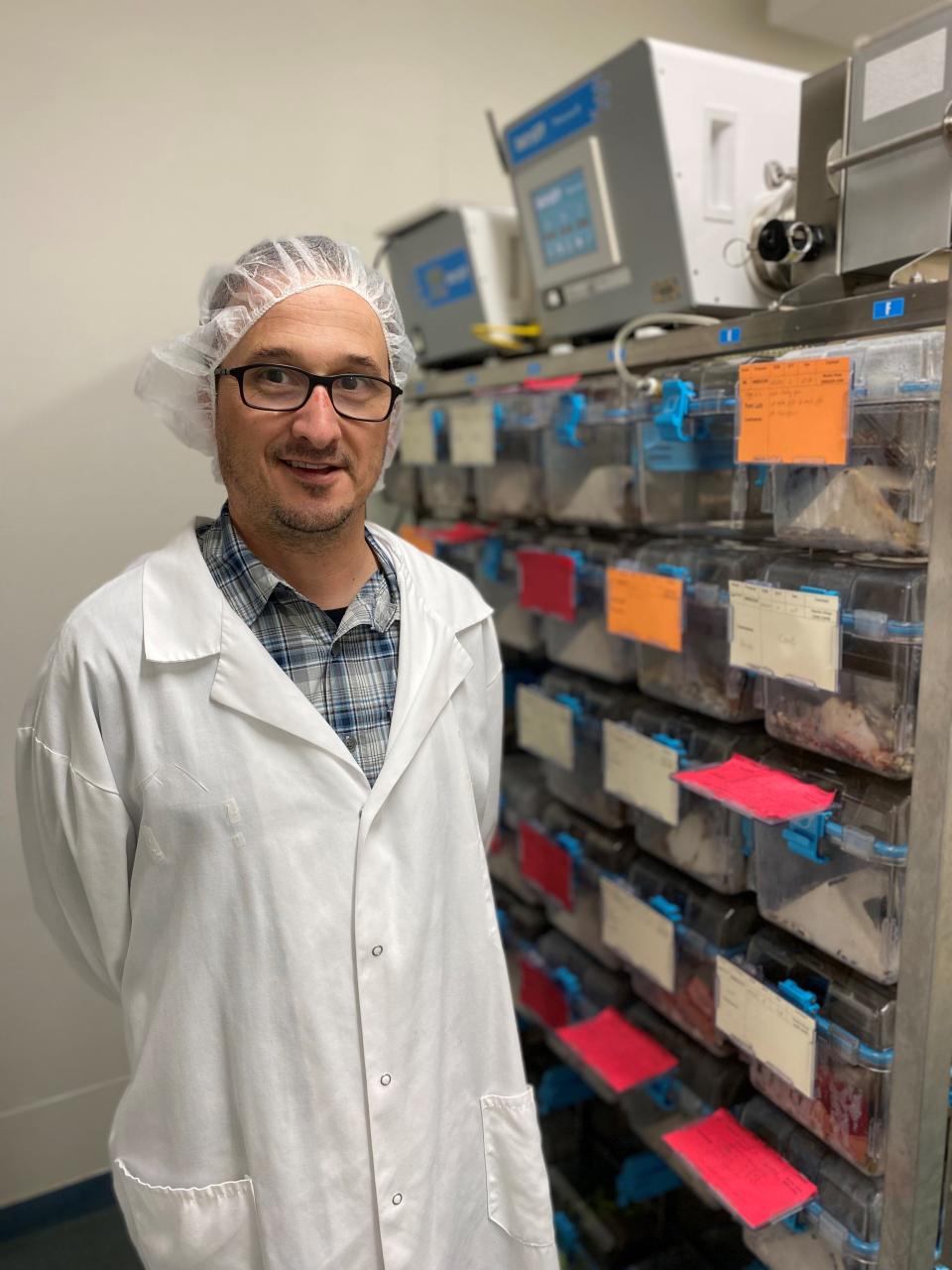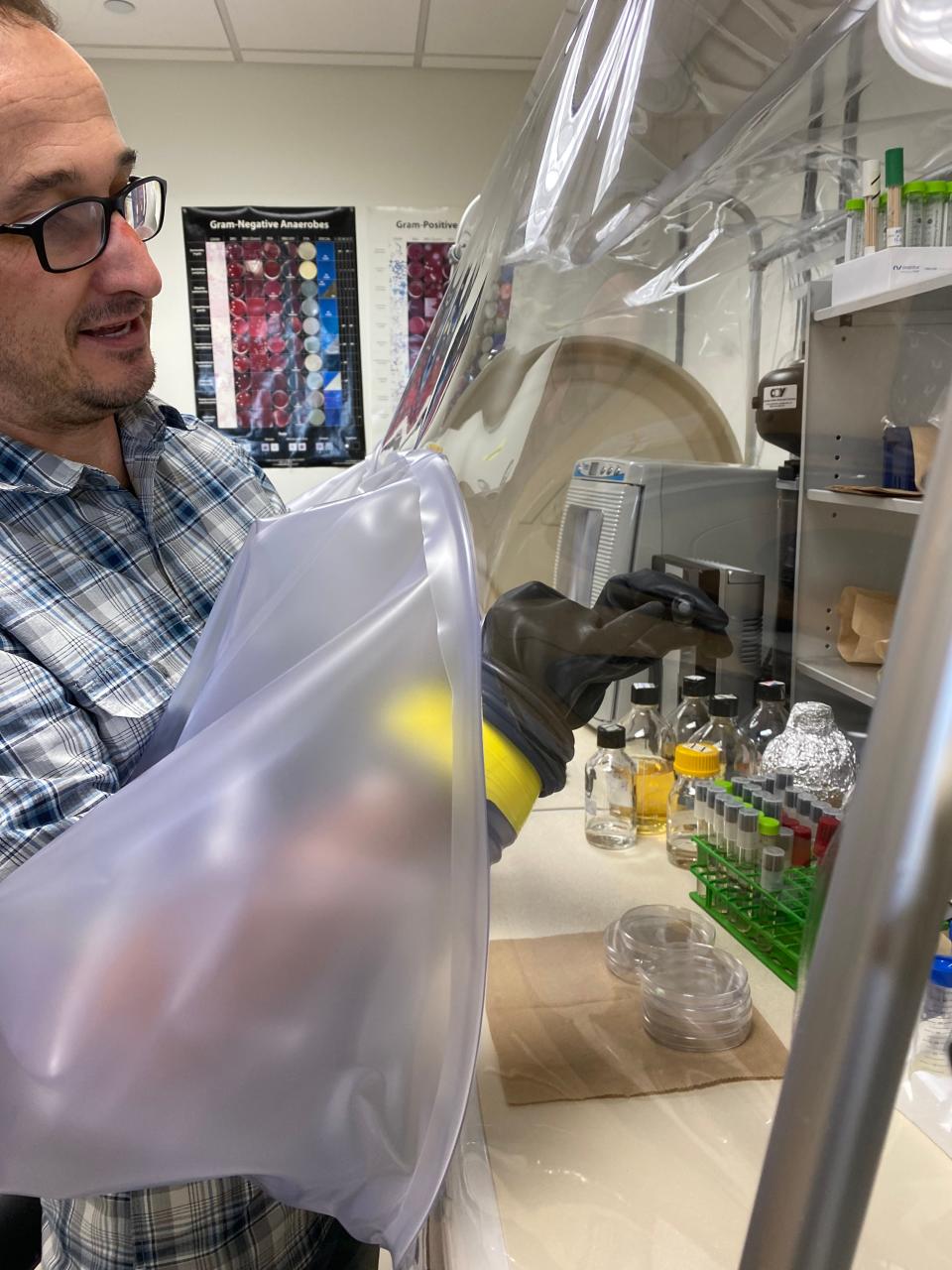Gut bacteria hungry for inflammatory chemicals may protect against gout and heart disease
Beer is rich with organic chemicals, called purines, that can crystalize and accumulate in the blood, which could lead to gout and cardiovascular disease.
A study estimated that between 2015 and 2016, 9.2 million people in the United States experienced gout. And cardiovascular disease continues to be the leading cause of death for people over 45.
But don’t say goodbye to your favorite craft beer just yet.

New research from the University of Wisconsin-Madison and international collaborators discovered certain bacteria that can break down those inflammatory chemicals in the gut, which, in turn, can reduce the amount of chemicals that circulate in the blood.
Purines are not inherently bad. They are a natural compound that cells need to build DNA and RNA.
High levels of purine, though, are harmful.
When purines are metabolized, they generate a waste product called uric acid. Most of it is processed in the kidneys and exits the body via urine. About 30% is secreted into the intestines. From there, it can reenter the bloodstream and crystallize due to its low solubility.
Gut microbes are picky eaters
Some bacteria have already been shown to break down uric acid. The bacteria need oxygen to survive and are considered “aerobic.”
The gut, however, has very little oxygen. Microbes residing here are “anaerobic,” and prior to this study, it wasn’t known whether the anaerobes could metabolize those compounds or if they existed in the human body.

Researchers screened human feces for bacteria that could undergo this process. They transferred fecal samples into “germ-free” mice and measured purine and uric acid levels. They found that adding gut microbes significantly decreased the amount of uric acid circulating in the blood.
“It suggests that we have evolved a system in which select members of our microbiome are important for handling purines and processing uric acid,” said Sean Colgan, an immunology professor at the University of Colorado Anschutz who was not involved in the study.
They also discovered genes that are required for uric acid metabolism.
The bacteria are fairly common among people, but simply having them in our gut isn’t enough.
The microbes are picky eaters. If another energy source, like glucose or fructose, is available, the bacteria prefer to eat that.
“Other carbon sources turn off uric acid utilization,” explained Federico Rey, an associate professor at UW-Madison and the principal investigator in the study.
There is no scarcity of glucose in the average American diet. The American Heart Association estimates that adults consume more than three times the amount of recommended sugar daily. This is part of the reason why the microbes have not been discovered until now.
“That's another aspect that we're trying to understand,” added Rey. “How does diet impact the activity of the bacteria?”
Is beer good for your health?: Here's the healthiest option to pick for your next cold one.
Cells need purines to function
One day, the microbes could be used to treat hyperuricemia, gout, and cardiovascular disease.
“We are definitely interested in exploring the potential for some of these organisms to be used as probiotics to lower uric acid,” said Rey.
"If you have gout, your doctor will tell you, 'No more beer,'" he added. But "if you have this bacteria that is eating the purines that you're consuming with your beer ... then there's going to be less available to your body."

He noted that using the microbes for treatment can be tricky. The bacteria lower blood uric acid levels, but they also wipe out purines from the gut. This is problematic because cells need purines to grow and make DNA.
What's in that?: Sports supplements with botanicals often contain mystery ingredients, study finds
“The inner lining of intestines has a very high demand for purines,” noted Ina Nemet, a microbiologist at the Cleveland Clinic who was not involved in the study. “You don’t want to deplete purines that are needed for the gut. There needs to be a balance, and how that can be done — we don’t know that yet.”
Additional research is needed before the microbes are used to treat human disease.
This article originally appeared on Milwaukee Journal Sentinel: Gut bacteria protect host from hyperuricemia, gout and cardiovascular disease

